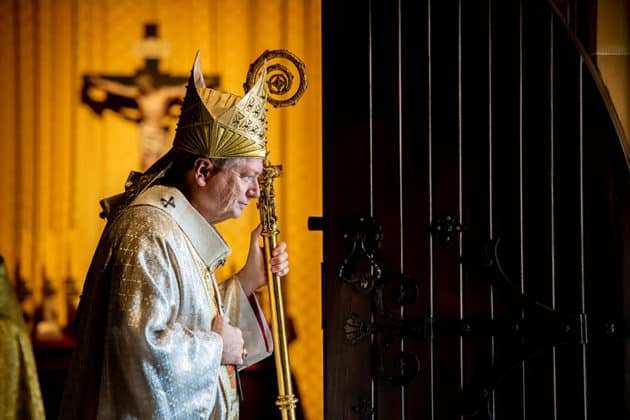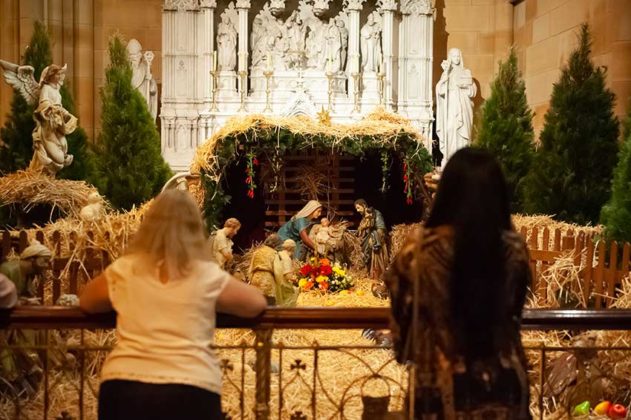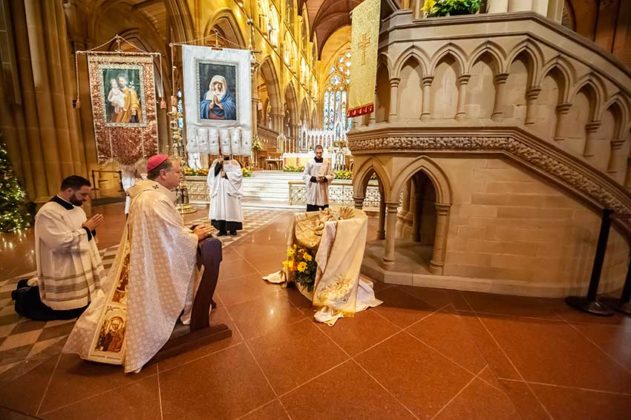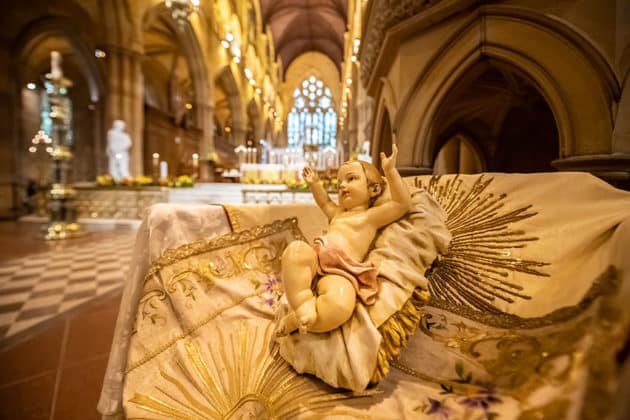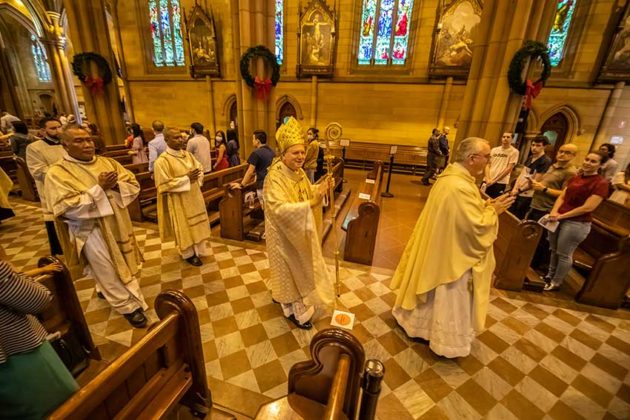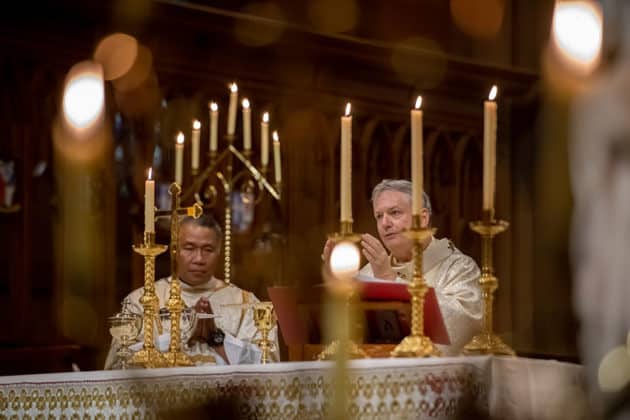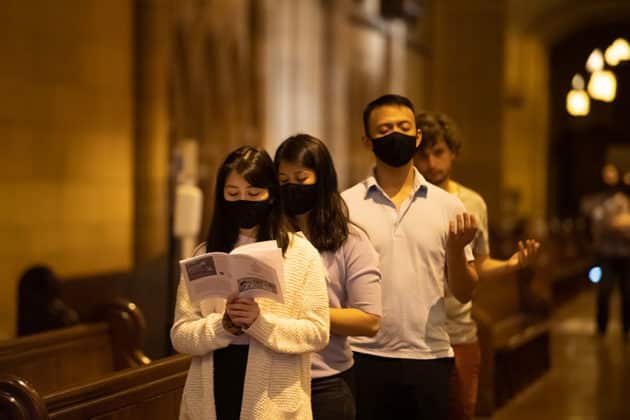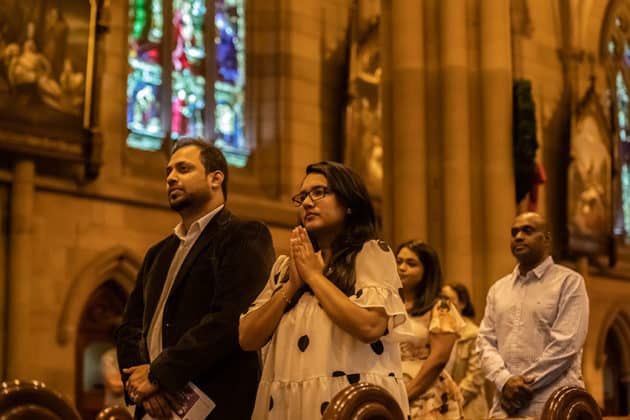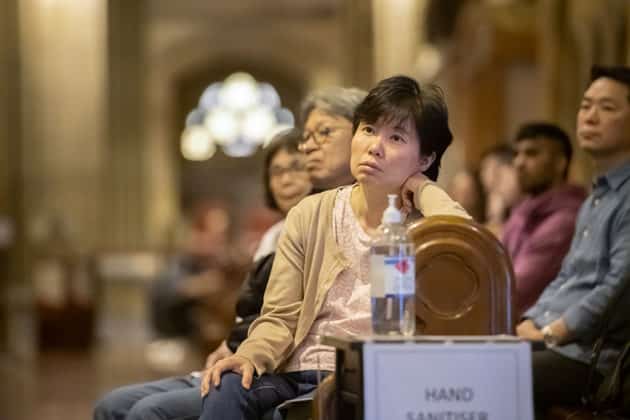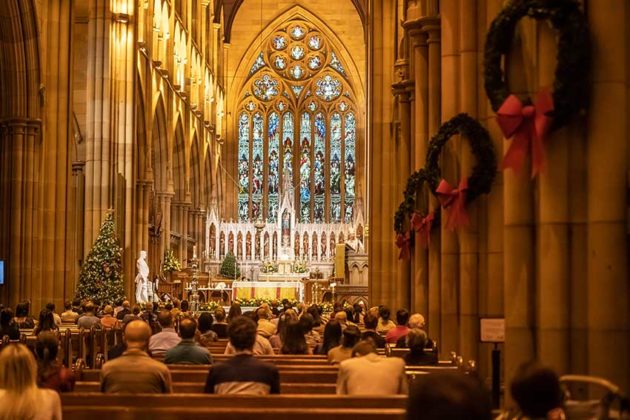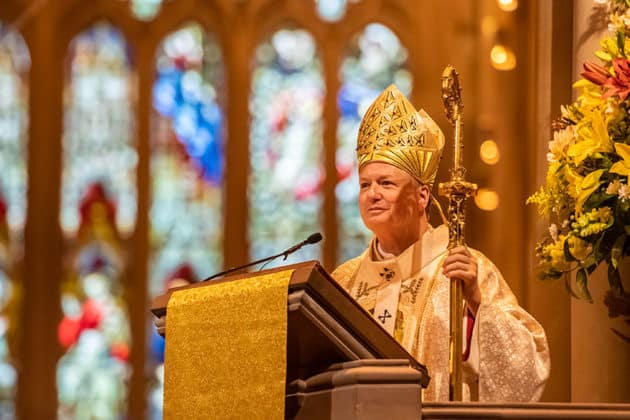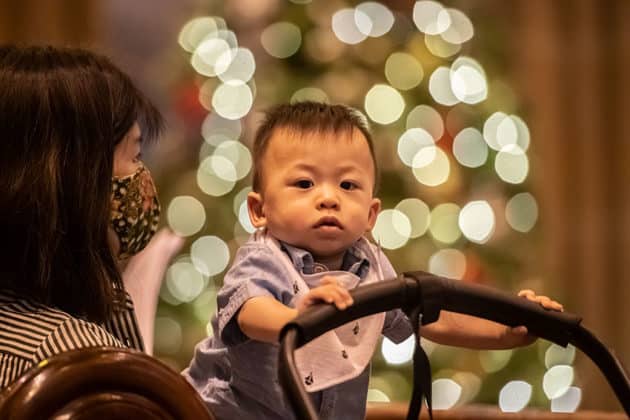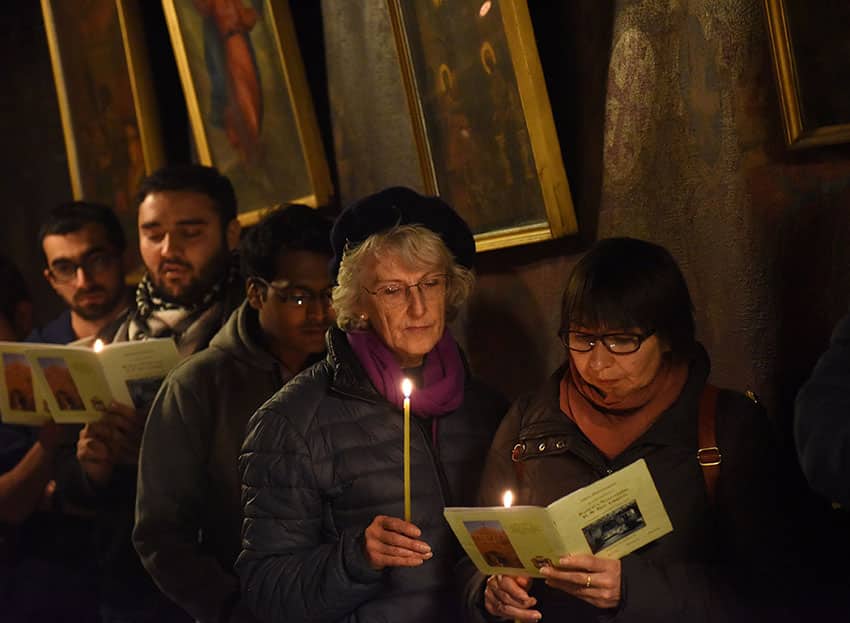
Christmas can be very isolating. Think of the teenager with the strange story about how she got pregnant (Lk 1:26-38; Mt 1:18). Amidst all the village gossip, she went off to the hills to stay with an aunt (Lk 1:39-56); when she got back tongues were still wagging and people socially distancing from her as if she were a leper. Even her betrothed took some convincing not to put her out of sight (Mt 1:19-25). Months later, and now heavily pregnant, she was forced by unsympathetic authorities to take the road to Bethlehem with her husband (Lk 2:1-6).
Once again no-one wanted her. She had to give birth in a stable (Lk 2:7). No mother or sisters to help. Then they had to flee as refugees from a government intent on killing the little one (Mt 2:16-18). No goodbyes to loved ones. So the boy was destined to spend his first years in exile. As He grew up he had many more experiences of seclusion, and while He valued solitude for prayer and contemplation, He also loved human company and experienced desolation when He was abandoned. At His first Christmas distancing was the order of the day…
For some, Christmas can be hard
For some people Christmas is an especially lonesome time, often because they too are separated from family and friends. It might be due to geography or some deep divide with long no-speaks. Perhaps there’s no-one even to be neglecting them. Seeing people gathering and jolly only rubs salt into the wound. Contrary to urban myth, rates of depression and self-harm actually go down at this time of year, but we understand how sequestered some people feel …
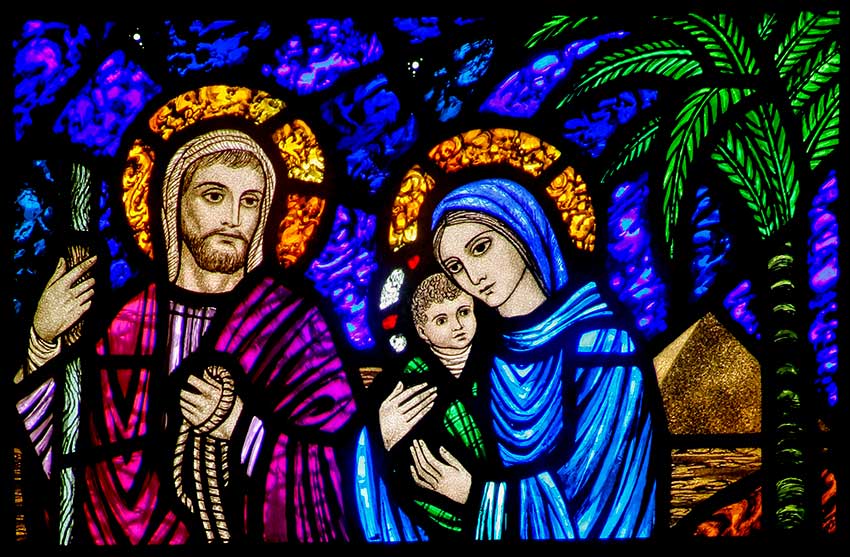
This year we’ve all had that experience. A year of anxiety about health, finances, family and friends. Of curtailed work, study, leisure, culture and worship. Of closed borders and locked-down cities, masking and zooming, social distancing and self-isolation. Such things are hard for social beings like us. We crave company and intimacy. We miss each other’s eyes, touch, proximity.
… but God comes close …
It was precisely in such dark times that Christ’s coming was experienced as Light. Amidst grave danger that He was experienced as ‘Yeshua’, Jesus, meaning ‘God saves’. Just when people felt most isolated that He was Emmanuel, ‘God with us’.
It’s said that the angels weep when a champagne cork is popped because they will never taste champagne. Pure spirits like God and the angels have no bodies, no geography, no proximity. Only material beings can have a location, move from place to place, or be close or far from each other. We think of God or angels as ‘present’ wherever they affect the material world, but strictly speaking they are not, at least not in the sense that material beings can be present to each other. It was only when the Word took flesh and dwelt amongst us (Jn 1:1-18), only when God became one of us in Jesus, that God could literally come close.
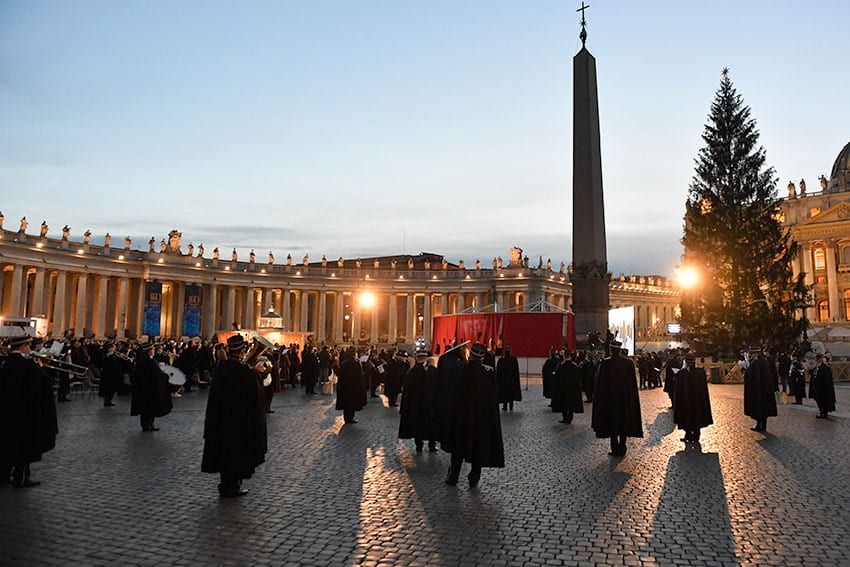
What better proof is there of God’s with-us-ness than that He became a little child, as weak and vulnerable as any human being? What clearer demonstration of Christ’s like-us-ness than His joining a family, friends, people? What plainer testimonial to His for-us-ness than that He was willing to bear all the weight of human sin and suffering, anxiety and loneliness, even to the cross, so as to offer the hope of Resurrection beyond?
A family for everyone
While many people think of God as distant, the baby Jesus is God come close. His birth makes a family into which others can be adopted. His weakness invites everyone to His crib, even shepherds and other outcasts (Lk 2:8-20). His light guides wise men through the wilderness (Mt 2:1-12) and will get us through the desert of COVID-19 and worse. As the Babe reaches out to us we cannot resist taking Him in our arms; but as we do, we experience the embrace of the God of all creation and Lord of the universe.

… so that we might come closer to God and each other
Like a magnet the Christmas Babe draws a young woman and older man, heavenly angels, foreign kings and local shepherds – in other words, everyone (cf. Jn 12:32). Like an antidote to social distancing, He unites all sorts as a single new people. God-come-close brings us closer to one another.
By God’s grace and thanks to our leaders, frontline workers and whole community, we Australians have (so far) been spared the worst of this pandemic. The level of cooperation is a tribute to the value we place upon life and especially our elders. But we must remain vigilant in the face of the virus and any other threats to life or the elderly. This Christmas, let’s give thanks that we are safe and pray for those not so fortunate.

Five years ago at Christmas I exhibited the first symptoms of Guillain-Barré Syndrome. Within hours I was in intensive care, totally immobile from the neck down, close to death. I spent five months in hospital recovering, while experiencing paralysis and pain, humiliation and total dependence. I learnt a lot about human weakness and need, compassion and care. Prayer and company, healthcare and physio, together brought relief and ultimately complete cure. I continue to this day to unpack the meaning of it all. I would not wish it on anyone. But there were unexpected graces amidst the suffering that I must not forget.
Finding the good amid difficulties
Understandably, many people just want to put this year behind them and get back to normal. But if, like my time in hospital, our enforced retreat has meant the getting of some wisdom about human vulnerability and interconnectedness, we must not lose it afterwards. This Christmas, let’s take a few moments to reflect upon what we’ve learnt in the Year of COVID.
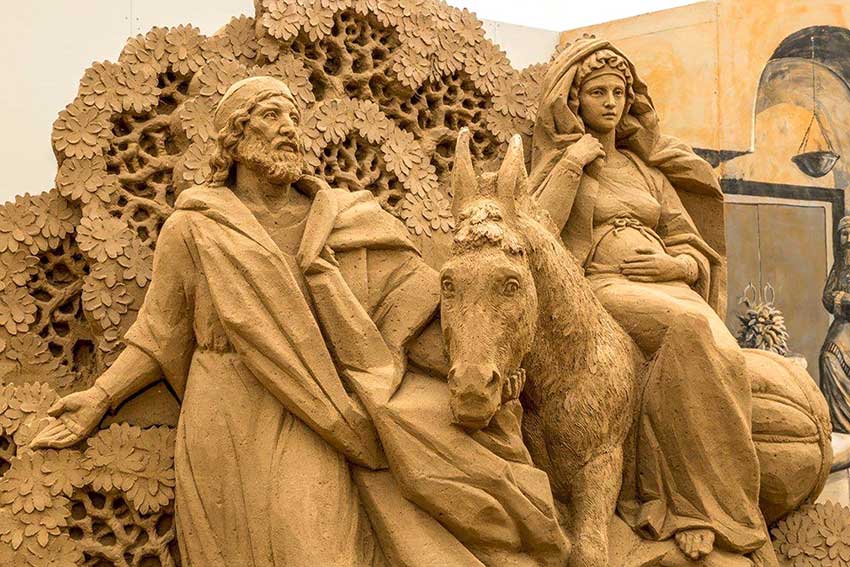
We might also consider how we’ll be different, individually and as a community, when it’s all over. Having reassessed our priorities, will we now focus on what really matters? After longing for each other’s company, will we be there for each other in future? Having experienced the upsides of spending more time with our families, will we ensure we do so hereafter? After missing work colleagues, school friends, customers and neighbours, will we treasure them going forward? This Christmas, let’s commit ourselves to ending all unnecessary distancing, to bringing people together, and to liberating the physically isolated or emotionally locked-down.
The Christmas God is not into distancing. Because we were lonely and lost, He came close. From His crib He reaches out to us and we can in turn reach out to others. The smile of the Babe of Bethlehem is happiness and hope for every human heart (Isa 52:7-10). He smiles at you this Christmas.
Related

